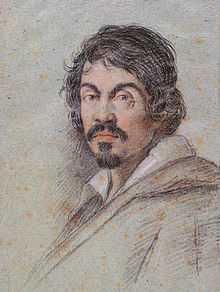Today in History - July 18
• Nero Helps the Homeless during the Great Fire of Rome
• Caravaggio the painter dies a homeless wanderer
• Brazil's slaves freed by Emperor Pedro II's daughter
-- Compiled by James Finlayson-Bald
 Despite the widespead myth that the Emperor Nero started the Great Fire of Rome (64 AD) and played his fiddle or lute while Rome burned, most modern historians agree that those things did not happen. For one thing, the fiddle had not been invented yet!
Despite the widespead myth that the Emperor Nero started the Great Fire of Rome (64 AD) and played his fiddle or lute while Rome burned, most modern historians agree that those things did not happen. For one thing, the fiddle had not been invented yet!
According to the Roman historian Tacitus, Nero brought in food supplies and opened gardens and public buildings to accommodate refugees.
The above image is The Fire of Rome, 18 July 64 AD, an oil painting by Hubert Robert (1733–1808). This painting is now located in the Musee des Beaux-Arts Andre Malraux. Le Havre, France.
On this date:
64--The great fire in Rome began in that part of the Circus adjoining the Palatine and Caelian hills. It started in a line of shops containing inflammable materials, and, fanned by the wind soon spread the entire length of the Circus. The Emperor Nero returned from Antium and assigned the Campus Martius and the Agrippa monuments for the relief of the homeless. He also opened his own gardens and put up temporary buildings to house the destitute and brought up provisions from Ostia and neighbouring towns and reduced the price of corn. Some noted that the day on which the fire began, was also the day on which the Senonian Gauls had taken and burned the City, and that the two burnings were separated from one another by exactly the same number of years, months and days. The fire raged for nine days.
1100--Godfrey, Duke of Lorraine, and first Crusader ruler of Jerusalem, "Advocatus Sancti Sepulchri", as he would not take the title of king, died.
1374--Petrarch (Francesco Petrarca) died. Italian poet and scholar, he was one of the first to revive interest in the language and literature of ancient Rome. Through the patronage of the Colonna family he came to know the learned and great and to correspond with rulers on political affairs. He travelled widely but he retired to Arqua near Padua and there he was found dead with his head resting on a book. Petrarch is regarded as the Father of Italian Humanism.
 Caravaggio was one of the original "bad boys" in the art world. His life was one of violence, of exile and of brilliant innovation in painting. Paul Valéry said of him: "What begins in the work of Caravaggio is, quite simply, modern painting." He died of malaria at the age of just 38.
Caravaggio was one of the original "bad boys" in the art world. His life was one of violence, of exile and of brilliant innovation in painting. Paul Valéry said of him: "What begins in the work of Caravaggio is, quite simply, modern painting." He died of malaria at the age of just 38.
1610--Michelangelo Marisi da Caravaggio, Italian artist, died. The dramatic nature of his painting may have reflected the violence of his own life. In 1606 he was banished from Rome after killing a man in a fight. Reaching Malta he insulted a knight, but escaped to Sicily. Disembarking in Naples he was arrested in error but on release found that the boat with all his possessions had sailed. He died shortly afterwards, a sick and hopeless wanderer.
1851--Pedro II crowned Emperor of Brazil. Only 16 when he assumed power after a troubled regency, he proved himself a liberal-minded constitutional ruler. In 1870 a long war with Paraguay ended in victory but the heavy Brazilian losses caused recriminations. The army's support for the regime weakened and a republican party appeared, and his position became untenable when, during his absence in Europe his daughter freed the slaves without compensating the owners. After a bloodless revolution he retired to Europe.
Birthdays:
-- Gilbert White, naturalist, (1720-1793)
-- Sir George Gilbert Scott, architect (1811-1878)
Quote:
"The various modes of worship which prevailed in the Roman world were all considered by the people as equally true; by the philosophers as equally false; and by the magistrates as equally useful." -- Edward Gibbon.
The above article was written by James Finlayson-Bald.
Edited and illustrations added by David Paul Wagner.
|

